Arts & Life
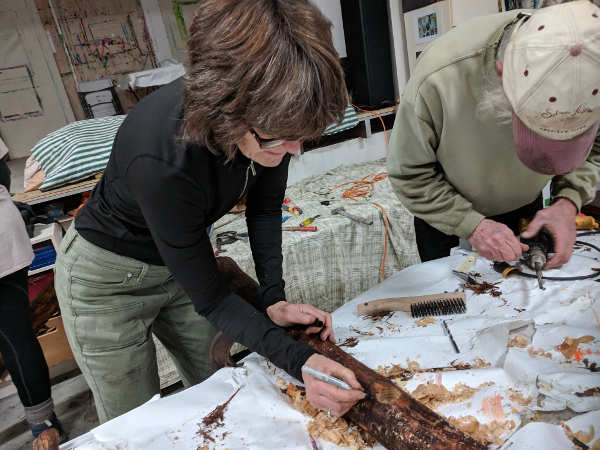
MIDDLETOWN, Calif. – The Middletown Art Center studio classroom is bustling with creative activity most days of the week.
From the ongoing Restore Project, to Woodland Community College classes in drawing and art appreciation, to homeschool classes in art and drumming.
This Sunday, March 31, from 1 to 5 p.m., the Restore Project’s focus is on the collaborative art piece “Vertical Pathways for Rabbit Hill,” a working title.
Taught by sculptor Emily Sheibal, the class involves woodworking and additive sculpting in concrete using hardware cloth and burlap.
“I am overjoyed to see the Rabbit Hill project coming to fruition after a series of classes and collaborative brainstorming with Restore Project participants”, said Sheibal. “Members of our community have been given an opportunity to take ownership and contribute to local revitalization after the 2015 fires. They are collectively giving back hope through art.”
Adults of all ages and children age 11 up are encouraged to participate in this unique opportunity to collaboratively create and engage with the natural environment.
The cost is $5 per session. There is no requirement to attend every class and no previous art making experience is necessary.
Sign up at www.middletownartcenter.org/restore. Preregistration is mandatory as space is limited.
Vertical Pathways is comprised of "totem pole" like sculptures. Participants are invited to select a fallen tree to carve and add form and shape to.
The “poles” will be installed in an undulating serpentine fashion to create a rhythmic visual pathway on the hillside. The “pathway” will provide a sense of protection, and visual contrast and harmony, while honoring remaining trees and offering additional habitat for birds and pollinators.
Visit www.middeltownartcenter.org/restore to learn more about the project and see the kind of sculptural works we have been inspired by.
Earlier this year Restore participants who attended a field trip to Rabbit Hill with Lake County Land Trust members were inspired by both the totem like quality of remaining burned trees on the hillside and by stories they were told about the flutes that the former Rabbit Hill owners, “Huck” and “Skee” Hamann used to teach neighborhood children how to make and play.
In the 1970s the Hamanns donated the property to the Madrone Audubon Society. Rabbit Hill was transferred to the Lake County Land Trust after its inception in the 1990s. This project is a partnership between MAC and the Land Trust.
Additional Restore sessions focused on Vertical Pathways will be held April 14 and 28 with other creative and installation activities announced during April and May. Community members interested in helping with landscaping and installation can email
Restore classes in sculpture, mixed media, printmaking or creative writing are offered most weekends through May from 1 to 5 p.m.
Upcoming classes include block printmaking with John Jennings on April 6, 3D Mixed Media with Laura Kennedy on April 7. Pre-registration is required for all classes at www.middletownartcenter.org/restore as space is limited.
The Restore project was made possible with support from the California Arts Council, a state agency, with additional support from the Lake County Land Trust and other local organizations, businesses, and individuals.
Visit www.ca.arts.gov to learn more about the California Arts Council’s work in communities and schools throughout California. Learn more about the Lake County Land Trust at www.lakecountylandtrust.org.
The MAC Gallery currently features “Living Color” and vibrant exhibit open to the public Thursdays from 11 a.m. to 5 p.m., Fridays from 11 a.m. to 6 p.m., Saturdays from 10 a.m. to 6 p.m. and Sundays from 11 a.m. to 5 p.m.
Be a part of the growing arts and cultural scene in South Lake County by becoming a MAC member, by participating in Restore classes, or by attending one of the many events or classes at MAC.
Visit www.middletownartcenter.org or “Like” Middletown Art Center on Facebook to stay up-to-date.
- Details
- Written by: Middletown Art Center
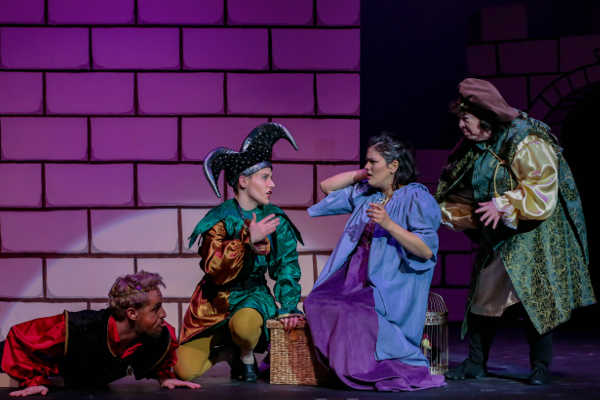
UKIAH, Calif. – The Mendocino College Theatre Department’s current production, “Once Upon a Mattress” is a raucous, entertaining re-envisioning of the “Princess and the Pea” with a heroine who, unlike the original, takes the bull by the horns and fashions her own Happily Ever After.
In the realm of fairy tale retellings, the play itself may not have the most inventive of plot twists, but who can resist a princess who swims a moat to catch her prince? Or story characters who answer to the names of Princess Winnifred Woebegone, Prince Dauntless the Drab and King Sextimus the Silent?
From the over-the-top antics of the Wizard (Shannon Sawyer), the chirrupy Queen Aggravain (Denise Doering), to the mostly silent (due to a curse that has rendered him mute), but very expressive King Sextimus, the large ensemble cast enthusiastically embraces roles that range from the slightly absurd to the downright comedic.
The result is a highly energetic production that’s sure to amuse and delight audiences of all ages.
It’s the 15th century in a faraway Kingdom, and Lady Larkin (Lindsey Chapman) is in a bit of a pickle.
She is pregnant but is unable to marry her gallant knight, Sir Harry (Eddie Haehl) because Queen Aggravain has decreed that no one in her land shall marry until her precious son, Prince Dauntless (August Kaster), has found a wife.
This, however, is turning out to be an impossible task as every potential bride has to prove herself to be a true princess by passing a test designed by the shrewish Queen.
“A princess is a delicate thing, delicate and dainty as a dragonfly’s wing. You can recognize a lady by her elegant air, but a genuine princess is exceedingly rare,” sings the Minstrel (Maria A. Monte) who also helps narrate the story.
At the play’s opening, 12 princesses have already tried and failed to win Queen Aggravaine’s approval, prompting Sir Harry to travel beyond the kingdom into the marshlands in search of a proper princess.
However, who shows up at the castle door – or over the wall, rather – is Princess Woebegone, wet and bedraggled after having just swum across the moat in her eagerness to meet the Prince, spunky and boisterous, and as undainty and indelicate as she can possibly be.
Much to Queen Aggravain’s chagrin, Prince Dauntless falls hopelessly in love with her. But of course, she must pass the test. In this case, a pea under a pile of twenty mattresses.
If Princess Woebegone sleeps undisturbed through the night, she’s not a true princess at all, and Prince Dauntless must remain haplessly single.
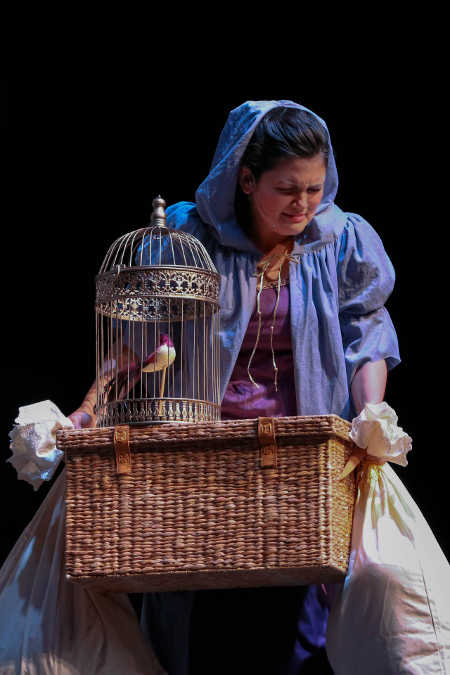
To aid the dastardly plot along, Queen Aggravaine throws a ball and demands that everyone dances the Spanish Panic (to tire Woebegone out) and spikes the princess’ drink with a sedative.
The ensuing dance numbers are a hilarious whirlwind of quick steps and mad cavorting as Woebegone alternately wields a weight over her head to showcase her strength, and drinks goblet after goblet of wine.
The cast exuberantly leads the audience through rompy, toe tapping tunes such as “Song of Love”, the amusing “Man to Man Talk”, and a rousing “Once Upon a Mattress” finale.
Most notable in their roles are Blare Elliot whose strong vocals and bouncy performance charmingly embodies the ever-jaunty and buoyant Princess Woebegone and Schuyler Marcier as the mute King Sextimus, humorously pantomiming his way through most of the show.
This being a fairy tale, the princess triumphs and wins her prince, but getting there is all the fun in this production.
“Once upon a Mattress” runs through March 31 in the Center Theatre at the Mendocino College Ukiah campus. Performances are Fridays and Saturdays at 7:30 p.m., and Sunday March 31 at 2 p.m.
Tickets are available at the Mendocino College Bookstore on the college campus, at the Mendocino Book Co. in downtown Ukiah and also online at www.artsmendocino.org . Prices are $20 for adults and $15 for students, seniors, and ASMC cardholders.
For more information, call 707-468-3172 or visit http://www.mendocino.edu/the-arts/theatre.
The Mendocino College Ukiah campus is located at 1000 Hensley Creek Road.
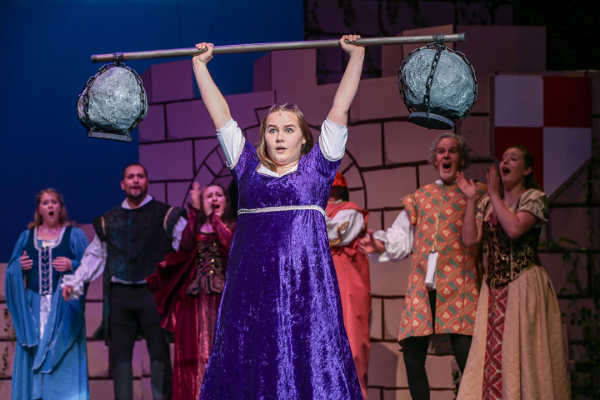
- Details
- Written by: NATASHA YIM
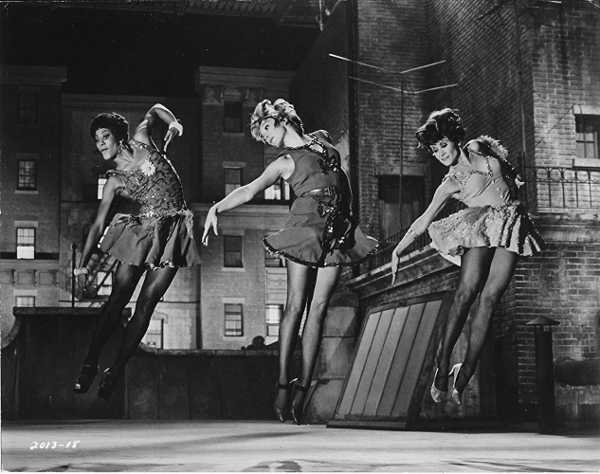
LAKEPORT, Calif. – The 1969 musical, “Sweet Charity,” starring Shirley MacLaine, screens at the Soper Reese Theatre on Tuesday, April 9, at 1 and 6 p.m.
Entry to the film is by donation.
Bob Fosse’s first film was nominated for three Oscars and adapted to the screen from the hugely successful stage version.
Standout numbers include “Hey, Big Spender” with MacLaine, Chita Rivera and Paula Kelly, as well as “The Rhythm of Life,” sung with relish by Sammy Davis Jr.
Fosse’s exuberant direction keeps things interesting, with glimmers of ideas and techniques which he would apply with perfection in his final opus, “Cabaret.”
The movie is sponsored by Karen Weston and Nancy Rhoades. Rated G. Run time is 2 hours and 28 minutes.
The Soper Reese Theatre is located at 275 S. Main St., Lakeport, 707-263-0577, www.soperreesetheatre.com.
- Details
- Written by: Elizabeth Larson
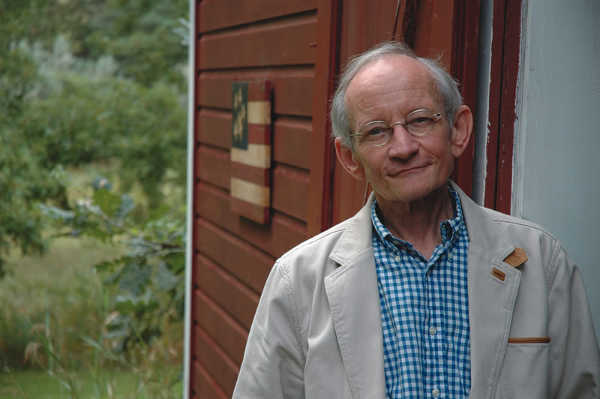
One of the many challenges in life is in knowing where you're supposed to sit. I slid into the wrong pew at a funeral 40 years ago and still smart from the hard looks I got.
Here's a church pew poem by Bruce Pemberton, who lives in Palouse, Washington. It's from the literary journal Third Wednesday.
Autumn 2017
There’s coffee and pie
with a widow from the church.
Why do you sit
in the back pew? she asks.
I’m close enough, I say.
Can I sit back there with you?
I’ve always sat there, I tell her,
with my same two friends,
and their clicking oxygen pumps.
One sat next to me for years,
called herself my church girlfriend,
who metastasized, telling me she was
tired of waiting to die.
Now, there’s just my 88-year-old friend,
his pump echoing in the sanctuary,
and there’s that empty
space between us.
I’d like to invite the widow to sit there,
but I miss my dead friend’s laugh,
her loving stories about her husband,
and how we were always
glad to see one another.
I tell the widow all this.
What if I just sat there? she asks.
It’s a free country, I tell her,
and she smiles.
American Life in Poetry does not accept unsolicited manuscripts. It is made possible by The Poetry Foundation, publisher of Poetry magazine. It is also supported by the Department of English at the University of Nebraska, Lincoln. Poem copyright ©2018 by Bruce Pemberton, "Autumn 2017," from Third Wednesday, (Vol. XI, no. 2, 2018). Poem reprinted by permission of Bruce Pemberton and the publisher. Introduction copyright ©2019 by The Poetry Foundation. The introduction’s author, Ted Kooser, served as United States Poet Laureate Consultant in Poetry to the Library of Congress from 2004-2006.
- Details
- Written by: Ted Kooser
 How to resolve AdBlock issue?
How to resolve AdBlock issue? 